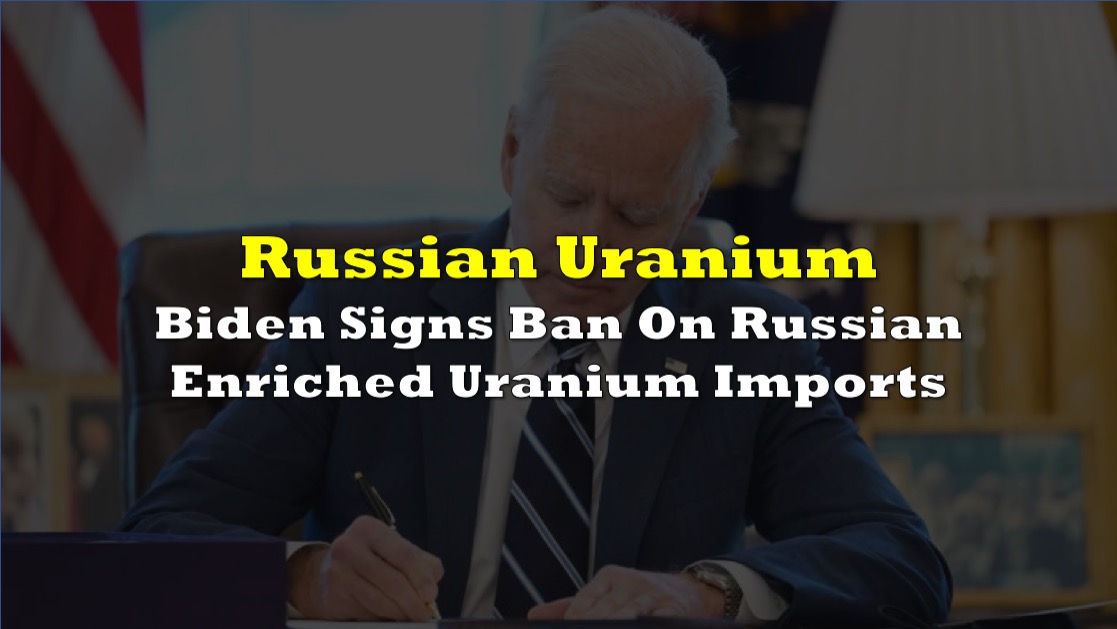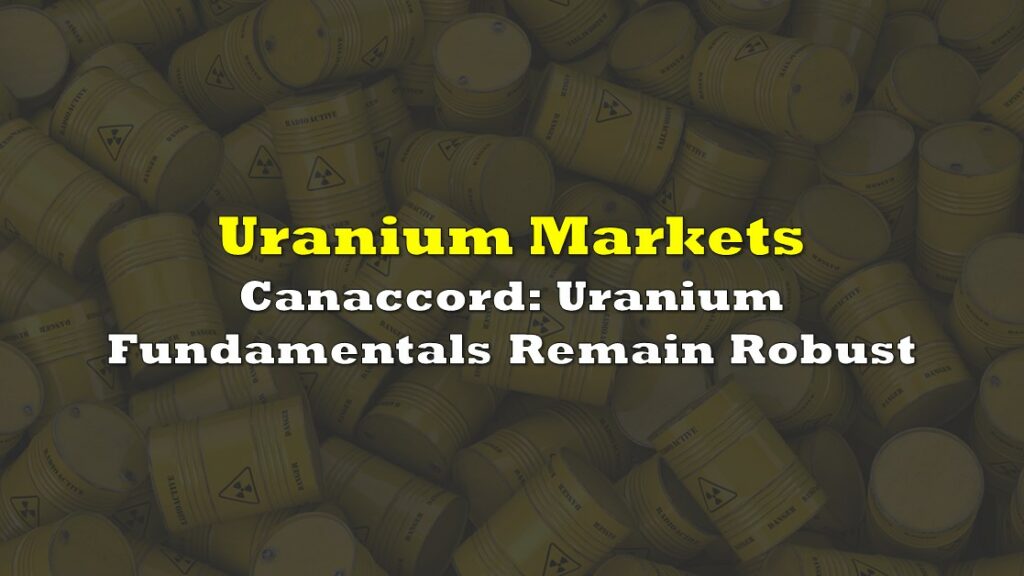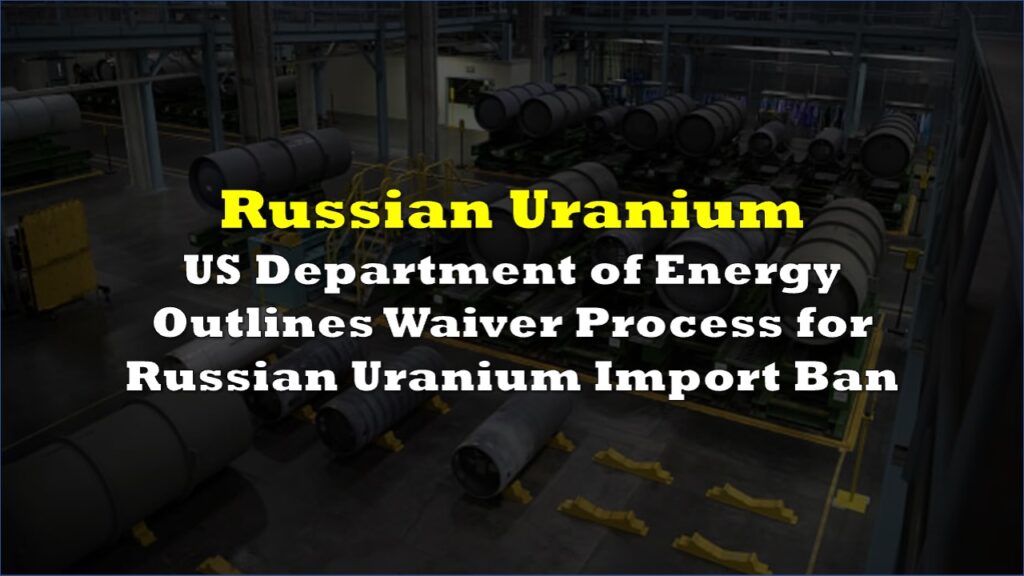US President Joe Biden signed a bill on Monday prohibiting the import of Russian enriched uranium, initiating a 90-day period before the restrictions come into force. This legislation also activates $2.7 billion in previously approved funds aimed at bolstering the US domestic uranium industry, crucial for powering nuclear reactors.
The ban is a strategic move amidst Russia’s prolonged invasion of Ukraine, targeting one of the US’s primary sources of uranium. According to the Department of Energy, Russia supplies approximately 25% of the uranium used in American reactors, generating about $1 billion annually from these sales.
Breaking!💥🔨 President Biden Signs Ban on Imports of Russian #Nuclear Reactor Fuel🇷🇺⚛️⛔📜✍️ Russian supplies of enriched #Uranium to be barred in 90 days✖️ Unlocks $2.72 billion funds to boost US domestic Uranium industry 💰⛏️🏭🇺🇲🤠🐂 #EnergySecurity🏄 https://t.co/bvVGzoONQL
— John Quakes (@quakes99) May 13, 2024
Experts like Jonathan Hinze, president of nuclear fuel market research firm UxC, warn that this ban could potentially increase uranium prices by 20%.
However, the legislation allows for the Department of Energy to issue waivers for Russian uranium imports until 2028 if no alternative sources are found or if deemed in the national interest. This flexibility is crucial as Russia could retaliate by preemptively halting exports of nuclear fuel to the US.
Biden’s signature follows the Senate making an unprecedented move by voting unanimously in favor of the Prohibiting Russian Uranium Imports Act. Now, the passing of this act has drawn attention from various quarters, including financial markets and industry analysts.
Cantor Fitzgerald, a financial services firm, recently issued a Uranium Macro Update, highlighting the potential implications of this legislative development.
“There is now an elevated risk that as a retaliatory measure, Russia preemptively halts nuclear fuel exports to the United States prior to the 2028 deadline covered by the temporary waivers provided for in this legislation,” the update read. “Should it occur, our best estimate is that spot uranium prices would likely gap up +20-30% and temporarily go no-offer.”
Despite the impending ban, US nuclear plant operators have been preparing. Constellation, the largest US nuclear plant operator, has secured fuel to power its operations through 2029 and beyond. Smaller operators, however, might face challenges in adapting to the new supply landscape.
Centrus Energy Corp., a key US-based uranium supplier reliant on Tenex, has expressed concerns about the ban’s impact, highlighting a “significant risk” to its business. The company plans to apply for waivers to mitigate potential disruptions.
Historically, the US was a leading supplier of enriched uranium but has seen its dominance wane. Currently, the US has only one commercial enrichment facility, owned by the Urenco Ltd. consortium, located in New Mexico. Centrus has recently initiated a pilot project in Piketon, Ohio, aiming to produce specialized reactor fuel, and secured around $900 million in conditional sales commitments to support production of conventional reactor fuel.
The Department of Energy intends to use $2.7 billion to rebuild the domestic uranium supply chain, ensuring a steady demand for American-made reactor fuel. Beneficiaries of this funding could include ConverDyn, a joint venture between Honeywell International and General Atomics providing uranium conversion services, and Global Laser Enrichment, owned by Silex Systems LTD and and Cameco.
“To reduce – and ultimately eliminate – our current dependence on Russian uranium for civilian nuclear power reactors, the most important step the US government can take is to invest in US commercial enrichment,” the White House National Security Council said in a statement.
Information for this briefing was found via Bloomberg and the sources mentioned. The author has no securities or affiliations related to the organizations discussed. Not a recommendation to buy or sell. Always do additional research and consult a professional before purchasing a security. The author holds no licenses.









